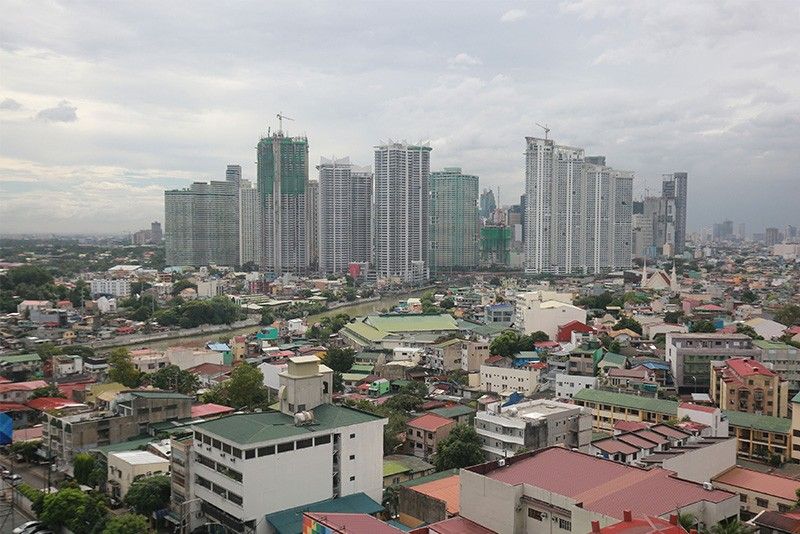Philippines to become 18th largest economy by 2037 — report
Philippine Star | 11 December 2018
 |
This Nov. 9, 2018 file photo shows the Mandaluyong-Makati skyline. The Philippines is set to become the 18th largest economy in the world over the next twenty years, Capital Economics reported, citing the Southeast Asian nation’s young workforce.
The STAR/Michael Varcas
|
MANILA, Philippines — The Philippines is expected to become the 18th largest economy in the world over the next twenty years, Capital Economics reported, citing the Southeast Asian nation’s young workforce.
In its “Long-Term Global Economic Outlook” report released last week, the London-based economic research consultancy forecasts the Philippines’ nominal gross domestic product to hit $1.414 trillion by 2037.
Thirty economies were tracked in the report. In 2017, the Philippines was ranked 25th in terms of nominal GDP.
By 2037, Capital Economics sees the US dominating the top 17 economies based on nominal GDP, followed by China, India, Japan, Germany, the UK, France, Mexico, South Korea, Brazil, Canada, Australia, Italy, Indonesia, Russia, Nigeria and Saudi Arabia, respectively.
“Growth in Emerging Asia is likely to slow over the coming decades due to a combination of less favourable demographics and reduced scope for catch-up,” the consultancy said.
“Meanwhile, working age populations will still grow at a fairly rapid pace in countries such as the Philippines, Malaysia and India,” it added.
The Philippines had enjoyed uninterrupted growth in the past quarters, thanks to benign inflation in the previous years that had given the central bank enough room to keep interest rates low.
In the same report, Capital Economics flagged weakening investor appetite in the Philippines due to President Rodrigo Duterte’s leadership style.
“There are signs that the election of President Duterte in the Philippines is scaring off foreign investors and the situation is unlikely to improve when he is gone,” it said.
“The country has a poor history when it comes to electing competent governments,” it added. — Ian Nicolas Cigaral
“Meanwhile, working age populations will still grow at a fairly rapid pace in countries such as the Philippines, Malaysia and India,” it added.
The Philippines had enjoyed uninterrupted growth in the past quarters, thanks to benign inflation in the previous years that had given the central bank enough room to keep interest rates low.
In the same report, Capital Economics flagged weakening investor appetite in the Philippines due to President Rodrigo Duterte’s leadership style.
“There are signs that the election of President Duterte in the Philippines is scaring off foreign investors and the situation is unlikely to improve when he is gone,” it said.
“The country has a poor history when it comes to electing competent governments,” it added. — Ian Nicolas Cigaral


No comments:
Post a Comment